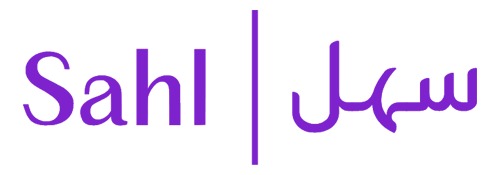In the high-stakes world of B2B startups, where every deal can define trajectory and trust is currency, SOC 2 compliance is quietly becoming a decisive growth lever. While often misperceived as a back-office checkbox or a cost centre, SOC 2 is a strategic asset that enhances credibility, accelerates sales cycles, and enables scalable, secure operations.
For early-stage SaaS companies and cloud-native ventures, embracing SOC 2 is not just about ticking off compliance boxes. It is about building trust, signalling maturity, and unlocking enterprise-grade growth.
Why SOC 2 Matters for Startups?
SOC 2, developed by the American Institute of Certified Public Accountants (AICPA), is a voluntary compliance framework that evaluates how effectively an organisation safeguards customer data across five trust service criteria: security, availability, processing integrity, confidentiality, and privacy.
For B2B startups handling sensitive client data, especially in SaaS environments, SOC 2 has become a de facto standard. A clean SOC 2 attestation report assures potential clients that your company operates with integrity, control, and accountability.
While larger corporations may adopt SOC 2 as a routine requirement, for startups, it is a signal of readiness and an early badge of operational maturity in a risk-averse procurement landscape.
SOC 2: Your Shortcut to Faster Deals
Enterprise buyers today are more cautious than ever. With security breaches making headlines and regulatory scrutiny rising, even mid-market clients expect vendors to prove their cybersecurity posture upfront. Without SOC 2, startups often find themselves buried under repetitive security questionnaires, delayed sales cycles, or worse, lost deals.
SOC 2 compliance serves as a powerful shortcut in this process. Instead of scrambling to meet ad hoc security requirements, startups with an attestation can confidently move deals forward. It becomes the document that answers dozens of vendor questions and reduces friction for legal and IT teams. As seen with leading SaaS companies, having SOC 2 compliance early on positions you not just as compliant but as enterprise-ready. Startups leveraging automated platforms like Sahl’s compliance automation product have achieved this with remarkable efficiency, meeting client expectations without slowing product development.
SOC 2: Build Security Early, Scale Smarter
SOC 2 is not merely a pass for sales. It is a framework that instills discipline and drives long-term operational resilience. To comply with the trust services criteria, startups must implement controls that touch every part of the business, from DevOps pipelines and incident response protocols to access policies and employee onboarding procedures. These foundational elements reduce the risk of internal breaches, ensure systems are available and dependable, and build a culture of continuous monitoring. This culture pays dividends as the company scales. Instead of retrofitting controls at a later stage, which often causes disruption, SOC 2 automation for early-stage companies allows security practices to grow in tandem with the business. As noted by compliance platforms like Sahl, early compliance is less expensive and far more effective than post-growth retrofitting.
SOC 2: Proactive Risk, Continuous Security
SOC 2 also compels startups to take proactive control of risk. With threats evolving rapidly, a one-time audit is no longer enough. Modern SOC 2 programs emphasise continuous monitoring and the ability to detect, respond to, and resolve anomalies in real time.
Rather than relying solely on manual audits or consultant-heavy processes, startups are turning to platforms that automate evidence collection, map controls intelligently, and monitor system health 24/7. This reduces the chances of breaches and minimises costly disruptions when they occur. In a landscape where the average cost of a data breach exceeds $4 million, even minor incidents can derail growth. SOC 2 compliance provides a structured framework to reduce these risks and demonstrate resilience.
SOC 2: Baseline, Not a Silver Bullet
Despite its advantages, SOC 2 is not a silver bullet. Experts caution against over-reliance on it as a catch-all solution. It does not replace a robust cybersecurity strategy or eliminate the need for secure code development, incident response planning, or vendor due diligence.
Startups must understand that SOC 2 compliance is a baseline, not a ceiling. The framework should be part of a broader risk-based strategy complemented by security best practices, ongoing staff training, and thoughtful tech architecture. Otherwise, it risks becoming a hollow certificate devoid of real-world protection.
SOC 2: The Silent Driver of Growth
In the race to scale, B2B startups often overlook the quiet forces influencing enterprise decisions. SOC 2 is one of those forces. It builds stakeholder confidence, eases investor diligence, and differentiates your brand in a crowded market.
By investing in SOC 2 early, startups are not just buying a report. They are buying time, trust, and traction. They are enabling faster deals, stronger partnerships, and smoother operations.
In that sense, SOC 2 is not just a compliance framework. It is a silent enabler of growth.



